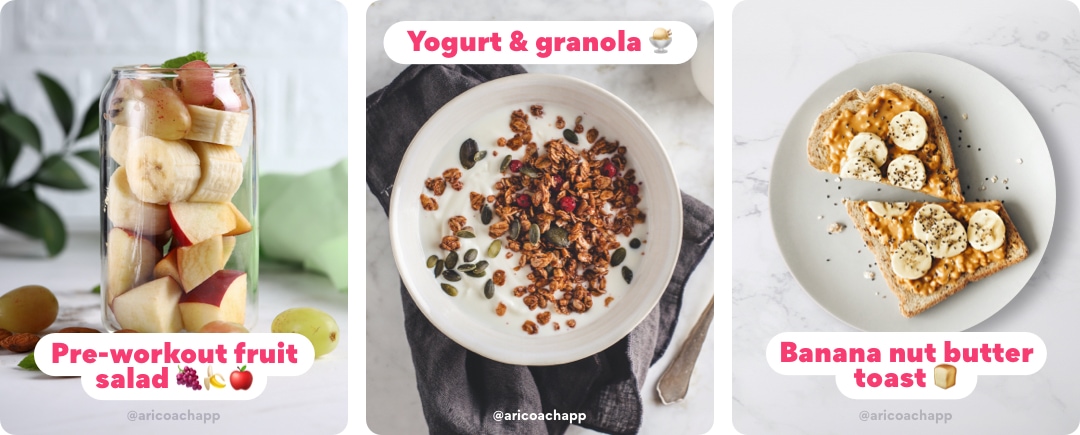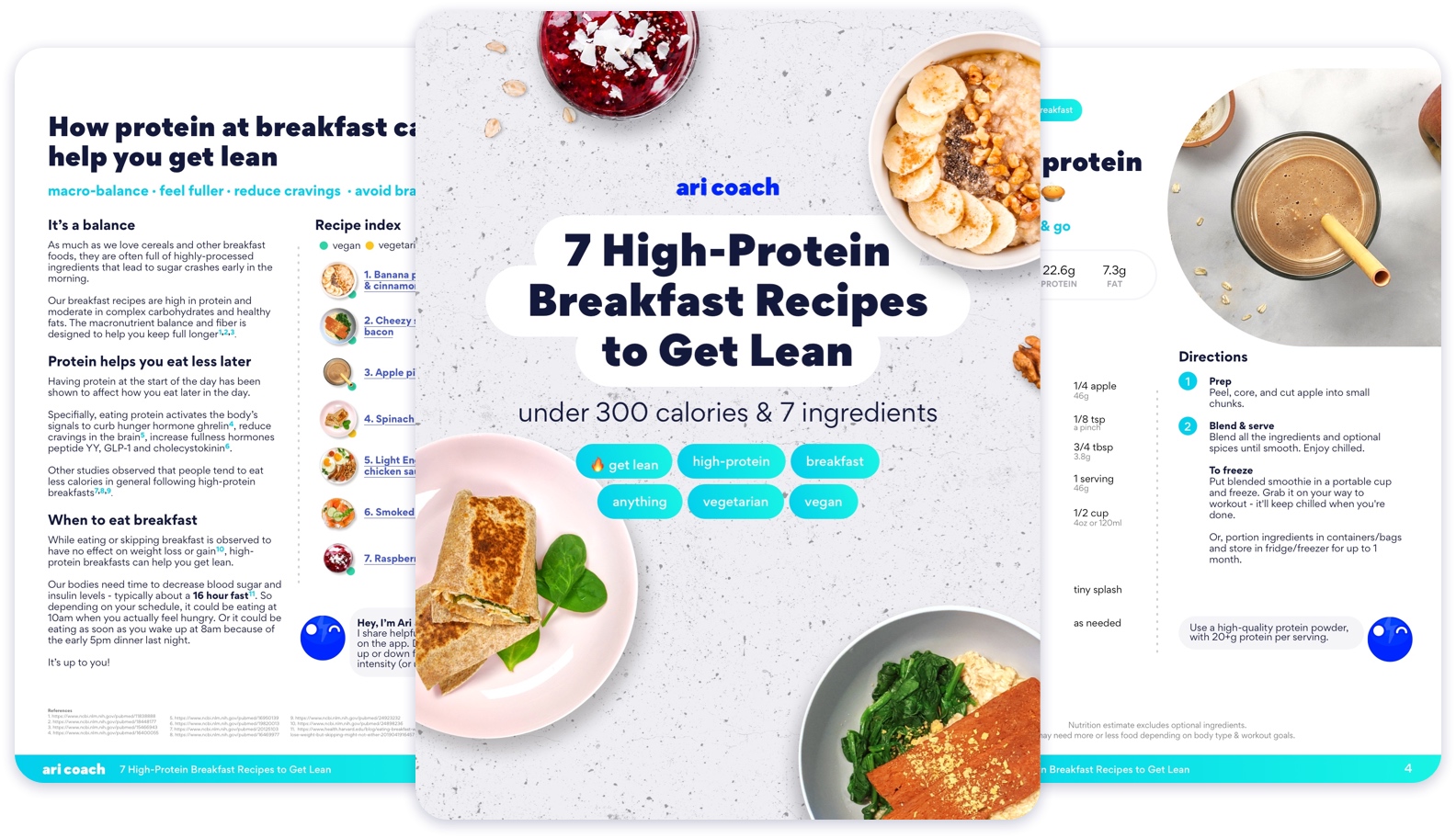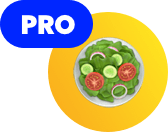Should you eat before exercise? Pre-workout Guide
5 Factors to consider for pre-workout meals
Written by Angela Lee, MPH on June 3, 2020
What are the benefits of eating before exercise?
Eating before a workout provides energy to sustain vigorous training and boosts performance. The energy boost is beneficial for workouts over an hour, especially those that focus on power, speed, and/or endurance.
But, it may not make a difference for low-to-medium intensity workouts under 1 hour.
Some people prefer to eat a pre-workout meal to stave off hunger and post-workout cravings. It may also benefit people who experience GI stress, low blood pressure, or low blood sugar levels.
Eating before a workout maximizes the energy available for your muscles and helps maintain consistent energy during the workout.
That way, you optimize the time spent exercising, instead of crashing in the middle.
What & when should I eat before a workout?
According to the Academy of Nutrition and Dietetics and our dietitian, there are a few key points to follow for a pre-workout meal or snack.
If you decide to eat before exercising, choose something that is:
- high in healthy carbohydrates
- moderate in protein
- low in fat (to avoid GI stress)
- ideally 3-4 hours before exercising.
Realistically, you can eat 1-2 hours before, and even 30 minutes before – although that increases the chances of stomach discomfort.
The body breaks down carbohydrates fastest, allowing the muscles to replenish the glycogen that they use for fuel. A moderate amount of protein may help jumpstart the recovery process post-workout.
But, protein takes longer to digest and may divert energy away from your muscles. Fat takes the longest to digest, which may help you feel full longer but, again, diverts energy towards digestion.
Can I lose weight or gain muscles faster by doing this?
Whether you want to lose or gain weight, it all comes down to energy balance. There’s no magic pill or strategy here.
The best way to achieve your goal is to develop a healthy and sustainable lifestyle.
The idea of sticking to a healthy habit may seem daunting, but it is not impossible! All it takes is making one small change at a time and putting in an effort to build on that habit every day.
Before you know it, it will be part of your daily routine!
Pre-workout drink vs food – what’s better?
Sports drinks, protein shakes, smoothies, and other beverages have the same benefit as eating. So, if you prefer, choose a beverage instead of eating solid food.
Drinks are particularly helpful in replacing fluids, energy, and electrolytes lost during exercise.
Now, you may be asking, “What types of beverages are good for pre-workout?” A sports drink with added protein, like whey, may improve endurance and post-workout recovery. A regular carbohydrate sports drink might be just as effective.
It’s more important that you get the energy you need to avoid a slump during the workout.
Short note about caffeine:
Some studies show that drinking coffee in moderation before exercising can increase calories burned after exercise. Be careful though! Too much intake of caffeine can cause cardiovascular health and GI issues. In fact, caffeine is not needed for optimal workout performance.
Are there any drawbacks to eating pre-workout?
Eating before exercising adds a step to burning fat in the body. The reason is that the body uses energy from what you eat first, before using stored fat.
This doesn’t mean that you won’t burn fat though!
Your body needs energy to repair muscles after a workout. In an energy deficit, your body will burn some fat regardless of when.
Research shows no significant difference in fat-burning when people exercise in a fasted state versus those that eat pre-workout. So rest easy, and eat when you need the energy.
Lastly, eating a pre-workout meal or snack may cause discomfort in the stomach. This is usually the case if you eat too much, or too soon, before exercise.
As recommended above, eat smaller portions the closer it is to your workout session, or aim to eat a meal about 3-4 hours before.
As a rule of thumb, listen to your body and decide whether you need food or a drink for a good workout.
Stuck on meal ideas? Get our top 7 Breakfast recipes!
Our 7 High-Protein Breakfast Recipes to Get Lean guide goes over the science of breakfast (spoiler, it’s not required) and its affects on weight loss.
Ready to ditch dieting?
Learn to nourish & fuel your body with Ari Coach – the #1 Mindful Meal Planner app for busy people!









